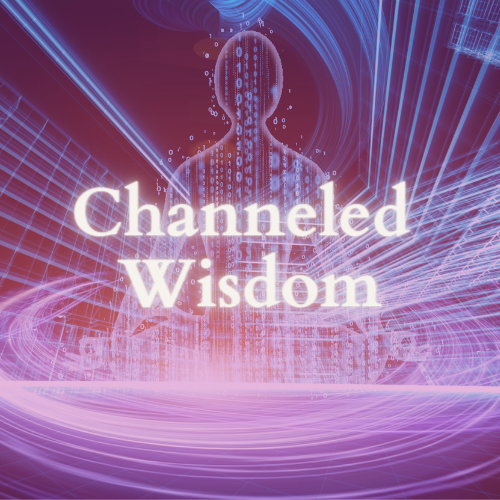
Maxim Gorky Channeled by Karl Mollison 01Nov2020
The book presentation about the American Relief Agency and Herbert Hoover https://youtu.be/PjNXilKnwu0
from https://www.imdb.com/name/nm0331003/bio
Maksim Gorky 28 March 1868 – 18 June 1936 who was born into a poor Russian family in Nizhnii Novgorod on Volga river. Gorky lost his father at an early age, he was beaten by his stepfather and became an orphan at age 9, when his mother died. He was brought up by his grandmother, who helped his development as a storyteller. He was blessed with a brilliant memory, but failed to enter a University of Kazan. At age 19 he survived a suicide attempt, because the bullet missed his heart.
After that Gorky traveled on foot for 5 years all over Central Russia, worked as a sailor on a Volga steamboat, then a salesperson, a railway worker, a salt miller, and a lawyer’s clerk. At that time, he was arrested for his public criticism of the Tsar and social injustices in Russia. He started writing for newspapers and published his first ’Sketches and Stories’ in 1890s. Later he wrote an autobiographic book “My Universities” based on impressions from his travels and jobs. Gorky wrote with sympathy about the simple folks, the outcasts, the gypsies, the hobos and dreamers in the context of social decay in the Russian Empire. He became friends with Anton Chekhov and Leo Tolstoy. His play ’The Lower Depths’ (1892) was praised by Chekhov and was successfully played in Europe and the United States. His political activism resulted in cancellation of his membership in the Russian Academy.
Anton Chekhov and Vladimir Korolenko left the Academy in protest and solidarity with Gorky. He went to live in Europe and America in 1906-13. In America he started his classic novel, ’The Mother’, about a Russian Christian woman and her imprisoned son, who both joined revolutionaries under the illusion that revolution follows Christ’s messages. After the Russian revolution in 1917, Gorky criticized Lenin and communists for their “bloody experiments on the Russian people”. He wrote, ’Lenin and Trotsky are corrupted with the dirty poison of power. They are disrespectful of human rights, freedom of speech and all other civil liberties”. Soon Gorky received a handwritten warning letter from Lenin.
Later his friend Nikolai Gumilev, ex-husband of Anna Akhmatova was executed by communists. In 1921 Gorky emigrated to Europe and settled in Capri. He became careful in his critique of communism. In 1932 after a series of brief visits, he returned to Soviet Russia.
He was placed in a rich Moscow mansion of the former railroad tycoon Ryabushinsky. His return from the fascist Italy was a victory for Soviet propaganda. He was made the Chairman of the Soviet Writer’s Union, and a figurehead of “socialist realism”.
After the murder of Kirov in 1934 Gorky was under a house arrest. His son died in 1935. The following year Gorky died suddenly at the Lenin’s dacha in Moscow.
Now he is a light being with a new perspective and a new message.
As a writer, Gorky used the pen to alert the public to corruption. Would spiritual healing methods like the Lightworker Healing Protocol have been more effective against darkness?

Osip Mandelstam Channeled by Karl Mollison 18Oct2020
From https://en.wikipedia.org/wiki/Osip_Mandelstam
Osip Mandelstam О́сип Мандельшта́м, 14 January 1891 – 27 December 1938 was a Russian and Soviet poet. He was the husband of Nadezhda Mandelstam and one of the foremost members of the Acmeist school of poets. He was arrested by Joseph Stalin’s government during the repression of the 1930s and sent into internal exile with his wife.
In 1922, Mandelstam and Nadezhda moved to Moscow. At this time, his second book of poems, Tristia, was published in Berlin. For several years after that, he almost completely abandoned poetry, concentrating on essays, literary criticism, memoirs The Noise Of Time, Feodosiya – both 1925; (Noise of Time 1993 in English) and small-format prose The Egyptian Stamp (1928). As a day job, he translated literature into Russian (19 books in 6 years), then worked as a correspondent for a newspaper.
In the autumn of 1933, Mandelstam composed the poem “Stalin Epigram”, which he read at a few small private gatherings in Moscow. The poem was a sharp criticism of the “Kremlin highlander”. Six months later, in 1934, Mandelstam was arrested. But, after interrogation about his poem, he was not immediately sentenced to death or the Gulag, but to exile in Cherdyn in the Northern Ural, where he was accompanied by his wife. After he attempted suicide, and following an intercession by Nikolai Bukharin, the sentence was lessened to banishment from the largest cities. Otherwise allowed to choose his new place of residence, Mandelstam and his wife chose Voronezh.
This proved a temporary reprieve. In the next years, Mandelstam wrote a collection of poems known as the Voronezh Notebooks, which included the cycle Verses on the Unknown Soldier.
He also wrote several poems that seemed to glorify Stalin (including “Ode To Stalin”). However, in 1937, at the outset of the Great Purge, the literary establishment began to attack him in print, first locally, and soon after from Moscow, accusing him of harbouring anti-Soviet views.
Early the following year, Mandelstam and his wife received a government voucher for a holiday not far from Moscow; upon their arrival in May 1938, he was arrested on 5 May (ref. camp document of 12 October 1938, signed by Mandelstam) and charged with “counter-revolutionary activities”. Four months later, on 2 August 1938, Mandelstam was sentenced to five years in correction camps. He arrived at the Vtoraya Rechka (Second River) transit camp near Vladivostok in Russia’s Far East and managed to get a note out to his wife asking for warm clothes; he never received them. He died from cold and hunger. His death was described later in a short story “Sherry Brandy” by Varlam Shalamov.
Mandelstam’s own prophecy was fulfilled: “Only in Russia is poetry respected, it gets people killed. Is there anywhere else where poetry is so common a motive for murder?”
Nadezhda wrote memoirs about her life and times with her husband in Hope against Hope (1970) and Hope Abandoned. She also managed to preserve a significant part of Mandelstam’s unpublished work.
Could extraterrestrial mind control be the cause of the persecution and exile Mandelstam experienced?
Description:
Osip Mandelstam Channeled by Karl Mollison 18Oct2020
From https://en.wikipedia.org/wiki/Osip_Mandelstam
Osip Mandelstam О́сип Мандельшта́м, 14 January 1891 – 27 December 1938 was a Russian and Soviet poet. He was the husband of Nadezhda Mandelstam and one of the foremost members of the Acmeist school of poets. He was arrested by Joseph Stalin’s government during the repression of the 1930s and sent into internal exile with his wife.
In 1922, Mandelstam and Nadezhda moved to Moscow. At this time, his second book of poems, Tristia, was published in Berlin. For several years after that, he almost completely abandoned poetry, concentrating on essays, literary criticism, memoirs The Noise Of Time, Feodosiya – both 1925; (Noise of Time 1993 in English) and small-format prose The Egyptian Stamp (1928). As a day job, he translated literature into Russian (19 books in 6 years), then worked as a correspondent for a newspaper.
In the autumn of 1933, Mandelstam composed the poem “Stalin Epigram”, which he read at a few small private gatherings in Moscow. The poem was a sharp criticism of the “Kremlin highlander”. Six months later, in 1934, Mandelstam was arrested. But, after interrogation about his poem, he was not immediately sentenced to death or the Gulag, but to exile in Cherdyn in the Northern Ural, where he was accompanied by his wife. After he attempted suicide, and following an intercession by Nikolai Bukharin, the sentence was lessened to banishment from the largest cities. Otherwise allowed to choose his new place of residence, Mandelstam and his wife chose Voronezh.
This proved a temporary reprieve. In the next years, Mandelstam wrote a collection of poems known as the Voronezh Notebooks, which included the cycle Verses on the Unknown Soldier.
He also wrote several poems that seemed to glorify Stalin (including “Ode To Stalin”). However, in 1937, at the outset of the Great Purge, the literary establishment began to attack him in print, first locally, and soon after from Moscow, accusing him of harbouring anti-Soviet views.
Early the following year, Mandelstam and his wife received a government voucher for a holiday not far from Moscow; upon their arrival in May 1938, he was arrested on 5 May (ref. camp document of 12 October 1938, signed by Mandelstam) and charged with “counter-revolutionary activities”. Four months later, on 2 August 1938, Mandelstam was sentenced to five years in correction camps. He arrived at the Vtoraya Rechka (Second River) transit camp near Vladivostok in Russia’s Far East and managed to get a note out to his wife asking for warm clothes; he never received them. He died from cold and hunger. His death was described later in a short story “Sherry Brandy” by Varlam Shalamov.
Mandelstam’s own prophecy was fulfilled: “Only in Russia is poetry respected, it gets people killed. Is there anywhere else where poetry is so common a motive for murder?”
Nadezhda wrote memoirs about her life and times with her husband in Hope against Hope (1970) and Hope Abandoned. She also managed to preserve a significant part of Mandelstam’s unpublished work.


